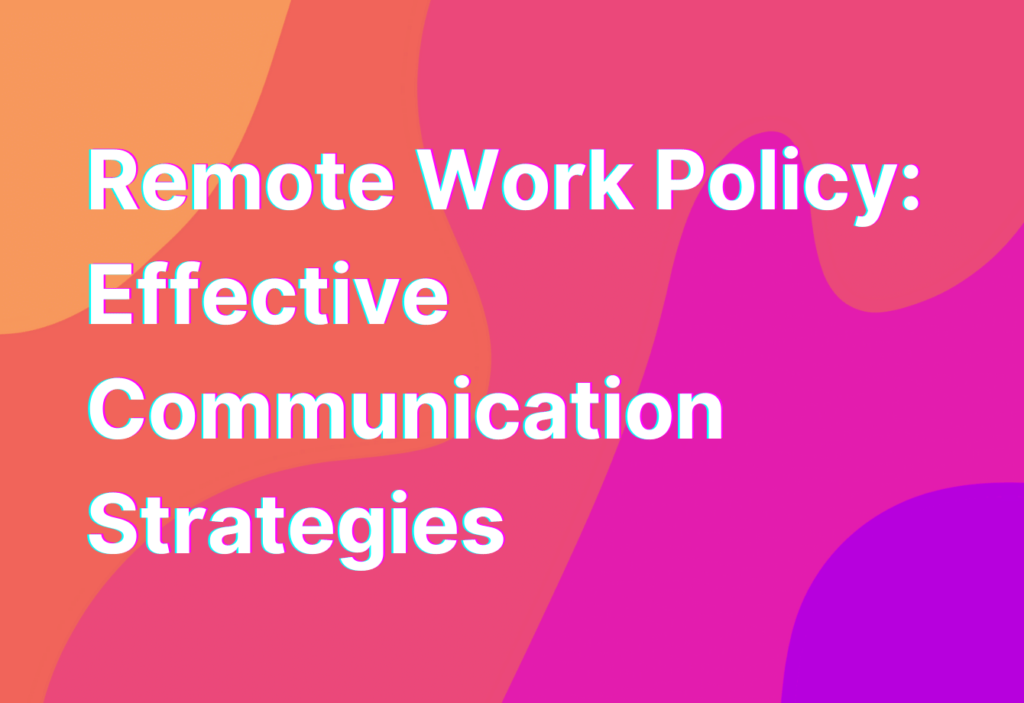Remote Work Policy: Effective Communication Strategies
Hey there, remote work enthusiasts! It’s Ashley here, your friendly remote work advocate with 10 years of experience in the tech industry. Today, I want to talk about one of the most crucial aspects of remote work: effective communication strategies. Whether you’re a remote team manager or a team member, having a solid remote work policy in place can make all the difference in ensuring smooth collaboration and productivity. So, let’s dive in and explore some key strategies for effective communication in remote teams!
1. Embrace the Power of Video Calls
When it comes to remote work, face-to-face interaction may not always be possible. However, thanks to technology, we have the next best thing: video calls! Platforms like Zoom, Google Meet, and Microsoft Teams allow teams to connect visually, fostering a sense of camaraderie and improving communication. So, don’t shy away from scheduling regular video calls to discuss projects, brainstorm ideas, or simply catch up with your team members.
2. Leverage the Right Communication Tools
Effective communication in remote teams heavily relies on the tools you use. While email is a staple, it’s essential to explore other options that promote real-time collaboration. One such tool is Slack, a popular messaging platform that allows teams to communicate seamlessly. With features like channels, direct messaging, and integrations with other apps, Slack can streamline communication and keep everyone on the same page. If you want to learn more about effective Slack communication, check out this link.
3. Set Clear Expectations and Deadlines
Remote work requires a high level of autonomy, but that doesn’t mean you should leave your team members in the dark. Clearly define expectations, deadlines, and deliverables to ensure everyone is on the same page. Use project management tools like Trello or Asana to assign tasks, track progress, and provide visibility into project timelines. By setting clear expectations, you’ll minimize confusion and foster a more productive work environment.
4. Foster a Culture of Transparency
In remote teams, it’s crucial to foster a culture of transparency to build trust and maintain open lines of communication. Encourage team members to share updates, challenges, and wins with the entire team. This can be done through regular team meetings, weekly progress reports, or even a dedicated channel on your communication platform. When everyone is aware of what’s happening, collaboration becomes more efficient, and problem-solving becomes a team effort.
5. Don’t Underestimate the Power of Small Talk
Working remotely can sometimes feel isolating, so it’s important to create opportunities for casual conversations. Don’t underestimate the power of small talk! Dedicate a few minutes at the beginning of team meetings for non-work-related discussions. This can help team members bond, build relationships, and maintain a sense of camaraderie. After all, a happy and connected team is a more productive team!
Wrapping Up
Effective communication is the backbone of successful remote teams. By embracing video calls, leveraging the right communication tools, setting clear expectations, fostering transparency, and encouraging small talk, you can create a remote work policy that promotes collaboration and productivity. Remember, remote work doesn’t have to be isolating. With the right communication strategies in place, you can build strong connections and achieve great things as a remote team!


